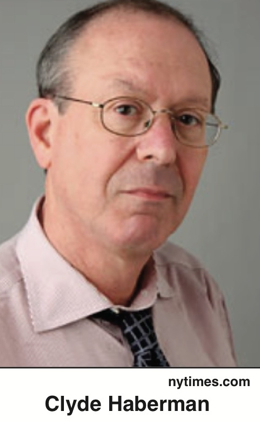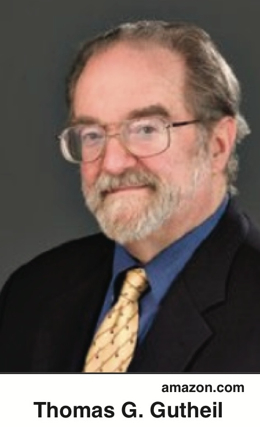Rascals case in brief
In the beginning, in 1989, more than 90 children at the Little Rascals Day Care Center in Edenton, North Carolina, accused a total of 20 adults with 429 instances of sexual abuse over a three-year period. It may have all begun with one parent’s complaint about punishment given her child.
Among the alleged perpetrators: the sheriff and mayor. But prosecutors would charge only Robin Byrum, Darlene Harris, Elizabeth “Betsy” Kelly, Robert “Bob” Kelly, Willard Scott Privott, Shelley Stone and Dawn Wilson – the Edenton 7.
Along with sodomy and beatings, allegations included a baby killed with a handgun, a child being hung upside down from a tree and being set on fire and countless other fantastic incidents involving spaceships, hot air balloons, pirate ships and trained sharks.
By the time prosecutors dropped the last charges in 1997, Little Rascals had become North Carolina’s longest and most costly criminal trial. Prosecutors kept defendants jailed in hopes at least one would turn against their supposed co-conspirators. Remarkably, none did. Another shameful record: Five defendants had to wait longer to face their accusers in court than anyone else in North Carolina history.
Between 1991 and 1997, Ofra Bikel produced three extraordinary episodes on the Little Rascals case for the PBS series “Frontline.” Although “Innocence Lost” did not deter prosecutors, it exposed their tactics and fostered nationwide skepticism and dismay.
With each passing year, the absurdity of the Little Rascals charges has become more obvious. But no admission of error has ever come from prosecutors, police, interviewers or parents. This site is devoted to the issues raised by this case.
On Facebook
Click for earlier Facebook posts archived on this site
Click to go to
Today’s random selection from the Little Rascals Day Care archives….
Click for earlier Facebook posts archived on this site
Click to go to
Today’s random selection from the Little Rascals Day Care archives….
New York Times remembers McMartin case
 March 12, 2014
March 12, 2014
“Really now, teachers chopped up animals, clubbed a horse to death with a baseball bat, sacrificed a baby in a church and made children drink the blood, dressed up as witches and flew in the air – and all this had been going on unnoticed for a good long while until a disturbed mother spoke up?”
– From “The Trial That Unleashed Hysteria Over Child Abuse” by Clyde Haberman in the New York Times (March 9, 2014)
Big thanks to Retro Report for its eye-reopening essay and 13-minute video recalling the seminal McMartin Preschool case. Also mentioned are Little Rascals and other “criminal cases of dubious provenance” from the moral panic.
Although the road to public exoneration for the Edenton Seven remains long and uncertain, this attention from the Times is welcome indeed.
Board couldn’t see Betsy Kelly ‘minus her publicity’
Sept. 13, 2013
“I am urging you to treat Elizabeth Kelly as you would treat anyone else with the same case file. I am asking you to demonstrate that we are all ‘equal under the law.’ Any other inmate with the same sentence and clean record would have been eligible for parole the minute she walked through the gates of the prison…. I am appealing to you not to withhold that which she would otherwise likely receive — minus her publicity, minus the rhetoric of politicians. I am imploring you not to deal more strictly with her than with others simply because she is Elizabeth Kelly.”
– From a letter to the North Carolina Parole Commission by Jane W. Duffield of Raleigh (April 5, 1994)
The Parole Commission proved unable or unwilling to consider Betsy Kelly’s case “minus her publicity, minus the rhetoric of politicians.” Bill Hart, vengeful over her unwavering insistence that she was innocent, reneged on a plea agreement not to contest her release, and the Parole Commission obediently sent her back for seven more months of wrongful imprisonment.
For Junior Chandler, one door opens – will another open?
 Nov. 16, 2013
Nov. 16, 2013
An update from Mark Montgomery, Junior Chandler’s appellate attorney: “[The N.C. Center on Actual Innocence] reviewed Junior’s case but could not find anything that would help him. The ‘kids’ were too young at the time to have anything helpful to say now. Of the two retarded adults who rode Junior’s bus (and testified against him), one is dead and the other incompetent.”
On a somewhat more encouraging note, Mark reports that the governor’s office has notified him that Junior’s clemency application is being considered.
Want to put in a word on Junior’s behalf? Here’s where to write:
Executive Clemency Office
4294 Mail Service Center
Raleigh NC 27699-4294
In search of a ‘frank and unblinking appraisal’
 Feb. 20, 2014
Feb. 20, 2014
Following up on the curious case of Richard Noll v. Psychiatric Times, I wrote editor-in-chief James L. Knoll IV to ask about the removal of Dr. Noll’s “satanic ritual abuse” essay from the Psychiatric Times website.
Did the journal plan to address in some fashion the issues raised in Dr.
Noll’s piece? “Unfortunately, I am not at liberty to comment on the situation,” Dr. Knoll replied.
Next I turned to Psychiatric Times’ editorial board, described on the site as “(not) just figureheads with impressive résumés…. They give us their frank and unblinking appraisal of the contents of each and every issue….”
This is from a letter I sent to 22 PT board members:
“I am writing you in response to Dr. Allen Frances’s call for psychiatrists to ‘step forward and do the right thing’ about the profession’s failure to confront the ‘satanic ritual abuse’ claims of the 1980s and early ’90s.
“As you know, Psychiatric Times removed from its website Dr. Richard Noll’s history of the SRA era….
“Dr. Noll concluded by asking: ‘Are we ready now to reopen a discussion on this moral panic? Will both clinicians and historians of psychiatry be willing to be on record? Shall we continue to silence memory, or allow it to speak?’
“How do you, as a member of the Psychiatric Times editorial board, answer these questions?
“Would you now be willing to join with Dr. Frances in formally setting the record straight about SRA and in making amends to the scores of wrongfully prosecuted victims of the moral panic?”
So far I have not been overwhelmed with responses to these questions. In fact, I have received only a single “frank and unblinking appraisal” – from Thomas G. Gutheil, professor of psychiatry, Beth Israel Deaconess Medical Center, Harvard
Medical School.
“I do agree (with Dr. Frances),” he writes. “The 1992 FBI report compiled by Kenneth Lanning should have put an end to this, when he investigated many claimed cases from law enforcement viewpoint and in multiple cases found not a shred of physical evidence, DNA, cells or bloodstains from butchered babies or sacrificed virgins.
“The problem is that social viruses like this are hard to assess and halt, like their biologic counterparts. I agree that individuals, especially in the legal system, should own up to their serious errors and miscarriages of justice, since improved science has blown up many claims, yet some prosecutors (e.g., Martha Coakley in Mass.) have not reversed themselves nor freed the imprisoned.
“However, I am not sure the entire mental health professions should share the blame.”
To be sure, distribution of responsibility among the professions is uneven – the Little Rascals prosecutors called on no psychiatrists at all, only psychologists, off-brand psychotherapists, etc.











0 CommentsComment on Facebook